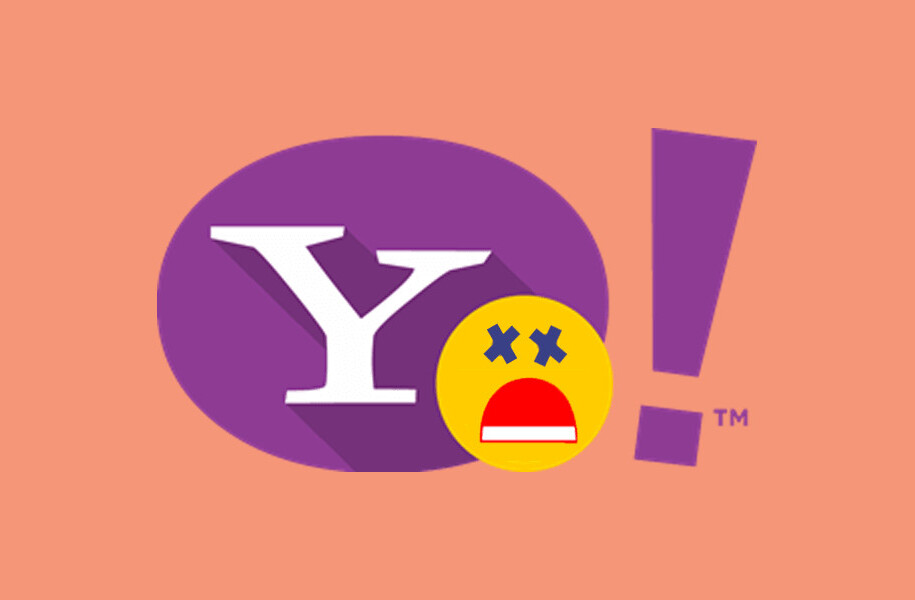
“Per the agreement and our promise not to screw it up, Tumblr will be independently operated as a separate business,” noted Yahoo’s statement when it announced it had acquired Tumblr for $1.1 billion.
That was on May 20, 2013, which is exactly one year ago this coming Tuesday. For the record, the tongue-in-cheek remark was a thinly-veiled reference to its handling of photo-sharing platform Flickr in the years that followed its 2005 acquisition.
Marissa Mayer has unquestionably breathed new life into the once mighty Yahoo since she jumped shipped from Google to become Yahoo’s CEO in July 2012, with a slew of refreshed products (including Flickr) coming to the fore in recent times.
But perhaps the most notable facet of Mayer’s tenure so far has been the prolific acqui-hire/acquisition spree she has engaged in, with more than one eye on improving the company’s future prospects. While Tumblr has certainly been the A-lister for Yahoo in the last twelve months, there have been many, many more.
While Yahoo’s past is peppered with acquisitions and acqui-hires dating back to Net Controls and Geo Cities in the nineties, through to Flickr and Delicous (del.icio.us) in the noughties, the last year has heralded the biggest concentration of acquisitions in Yahoo’s 20 year history. In the build up to the Tumblr acquisition, Yahoo snapped up to-do list app Astrid, a deal preceded by personalized recommendation startup Jybe, as well as news summary app Summly. Additionally, GoPollGo was bought and closed, as was MileWise on that same day in early May.
For context, the twelve months preceding the Tumblr deal led to 10 (known) acquisitions – each of which came after Mayer joined the company. And it’s also worth mentioning the $7 billion+ resale of shares back to Alibaba in September 2012, which has been instrumental in funding the subsequent wheelings and dealings.
There has been 29 acquisitions (that we know about) since that Tumblr crescendo back in May 2013, and here we take a look back at all the deals that have gone down in Yahoo town since.
Tumblr: May 20, 2013
Yahoo officially announced it was acquiring blogging platform Tumblr on May 20, 2013, sending a minor ripple through the blogosphere. Some called the tie-up doomed, given Yahoo’s less-than-glorious acquisition history, and WordPress founder Matt Mullenweg claimed that blog post transfers from Tumblr rose from around 500 per hour, to more than 72,000 in the hours after the deal was announced.

While there were some initial fears that Yahoo would shutter the service, or make drastic changes, this – so far – has not proven to be the case. Yahoo did adapt its porn policy, unlisting some NSFW blogs from search, introduced new terms of service to encourage attribution and prohibit impersonation, and brought native ads into the Tumblr mix. But by and large, things remain the same at Tumblr, with founder David Karp recently noting that Yahoo has “lived up to everything it promised”.
PlayerScale: May 23, 2013
Just a few days after news of the Tumblr deal broke, Yahoo announced it was buying gaming platform PlayerScale, which provided backend services for game-developers via its Player.IO product.
PlayerScale’s technology provides the infrastructure for developers to easily integrate payment systems and other key social and data-based features into their games. Yahoo already offered a gaming portal of its own, so it made sense that it may look at ways to enable developers to build money-making games for Yahoo’s products. Back in March, the Yahoo Games Network was launched, offering a new platform to aid third-party game developers with distribution of the Yahoo network and easier onboarding services.
GhostBird Software: June 12, 2013
Just as things had started to quieten down in Yahoo’s M&A division, news emerged in June that GhostBird Software would be the latest startup to hook-up with the Internet veterans.
GhostBird was the creator behind photography iPhone apps KitCam, PhotoForge, and PhotoForge 2. These were all subsequently removed from the App Store, with the team heading to work full-time for Yahoo and, more specifically, Flickr. Its farewell blog post read:
“As photography enthusiasts, we are long-time admirers of Flickr, and we’re thrilled to be able to bring our technology and passion for beautiful photos to the Flickr team. There has been so much exciting progress at Yahoo! as they re-imagine their most-loved products for mobile, including the awesome new Flickr apps for iOS and Android.”
Later that year, Flickr unveiled a new service that transforms your photos into $34.95 hardcover books. It was initially rumored that GhostBird technology was used to create this feature, but alas this was dismissed. However, the Flickr mobile apps were recently given a big overhaul, and we’re told there have been a “number of integrations throughout the Flickr experience” that have been directed by the Ghostbird team. This includes live photo and video filters, tools for capturing the best snaps, and advanced photo-editing.
Rondee: June 13, 2013
A whole day after the GhostBird deal was revealed, Yahoo picked up free conference calling service Rondee, with existing users advised to look for alternatives before it shut down a month later. This was a particularly interesting acquisition, insofar as no immediate synergies sprung to mind for Yahoo. Rondee itself simply said:
“We’re excited to join Yahoo!’s Small Business team and continue with Yahoo!’s goal of helping small businesses succeed online.”
There may still be something more audacious related to Rondee’s offering to come, but for now it looks like it was a simple talent acqui-hire, with Rondee co-founder and CEO Andre Vanier serving as Vice President, Product at Yahoo Small Business.
Bignoggins Productions: July 1, 2013
Yahoo’s acquisition spree steamrollered into July with five new companies brought under its corporate wing. The first of these was fantasy sports app startup Bignoggins, with the company reeled in to bolster Yahoo’s very own Fantasy sports product.
Bignoggins founder Jerry Shen said the move was a “dream come true” and, in marking the decision, he poked a little fun a Miami Heat star LeBron James’ performance in announcing his move to a new team, via a very entertaining skit:
Qwiki: July 2, 2013
Shortly after the Bignoggins deal was made public, Yahoo announced it had snapped up Qwiki, a company “that uses awesome technology” for storytelling through pictures, music, and video. Yahoo said it would continue to support Qwiki’s iPhone app, with the team moving to Yahoo’s New York office, however it’s not had much in the way of updates since last August.
To celebrate the news, the Qwiki team naturally put together a Qwiki:
Xobni: July 3, 2013
Capping off a prolific week of acquisitions, Yahoo swiftly revealed it had taken on email and address book service Xobni (‘Inbox’ in reverse) promising that current users would continue to be supported until July 2, 2014 – after this date, it’s still not clear what will happen with the service, with Yahoo telling us: “We’re not going to comment on future plans for the business.”
The Xobni team departed San Francisco to work at Yahoo’s Sunnyvale HQ, and it was clear that Yahoo Mail would ultimately benefit from the Xobni team and technology, which we saw with auto-suggest and enhanced contacts in February, and enhanced people searches in March.
AdMovate: July 17, 2013
On July 17, Yahoo announced it was snapping up AdMovate, a startup geared towards helping advertisers “deliver personalized, hyper-local targeted offers”.
The AdMovate team joined Yahoo’s advertising division, where the company revealed it would “execute [its] vision faster and address the most important mobile advertising challenges for [its] customers.”
Yahoo made it clear that this deal was an investment in its ad tech platforms, adding that AdMovate’s future contributions would focus on mobile:
Admovate’s personalization technology accelerates our capabilities in mobile advertising, and we gain an exceptionally talented technical team. Admovate’s engineers will join our Yahoo! display advertising team in Sunnyvale.
Ztelic: July 18, 2013
In a rare foray outside the US, Yahoo looked to China for its next acquisition two weeks later, taking on Chinese social analytics startup Ztelic in an effort to bulk up its R&D entity in Beijing.
Ztelic founder Hao Zheng was actually a Yahoo veteran, formerly serving as a senior Web architect for the company, so the ties were already there to some extent. Yahoo told us at the time of the deal:
“As part of our investment in our China R&D efforts, we’re bringing on a talented team of eight developers and engineers from Ztelic. Ztelic founder and returning Yahoo, Hao Zheng, will play a critical leadership role in our Beijing Global R&D Center. Hao will split his time between Beijing and Sunnyvale, and the rest of his team will be based in Beijing.”
The deal was yet another one of Yahoo’s talent plays, as Ztelic now no longer exists.
Lexity: July 31, 2013
Just as July was drawing to a close, e-commerce app platform Lexity revealed it has been bought by Yahoo.
Unlike other Yahoo acquisitions, this wasn’t strictly a talent buy, given that Lexity’s products and services were to be moved over to its new parent company:
“All Lexity apps, including our flagship app Lexity Live, will continue to run seamlessly, and we are putting more resources towards making them even better. We will continue to support merchants on any ecommerce platform―BigCommerce, Magento, Shopify, you name it. We will also continue to support and enhance Commerce Central, our write-once, run-anywhere platform for developers.”
Two months later, Yahoo relaunched Lexity as Yahoo Commerce Central, calling it “your one-stop shop for simple, affordable, and effective tools for your store.”
Rockmelt: August 2, 2013
After trying to reinvent the browser, failing, and pivoting to a new Web-based social feeds product that resembled Flipboard, Rockmelt was Yahoo’s first August acquisition. The company announced that its products would be completely shut down by the end of this month, with existing users able to export their content as an OPML file.
All 32 Rockmelt employees joined Yahoo’s media and mobile division, though specifics around what they were to be working on weren’t discussed. However, it did reveal that plans were afoot to integrate the Rockmelt technology into its media platform “to deliver content in new and exciting ways.”
IQ Engines: August 23, 2013
Image recognition service IQ Engines was acquired and closed in late August, with Yahoo revealing its plans to bolster the Flickr team.
IQ Engines was all about tagging and organizing photos, with its Glow image recognition platform telling users what a scene, object, landmark, text, and person is in any photo. Compatible with both mobile and Web apps, it’s something that could prove useful in the land of Flickr.
Hitpost: October 1, 2013
Following a quiet September, October got off to a flyer with news that Yahoo was snapping up Hitpost, the creators of a slew of sports-focused mobile apps based around live discussion and polls.
“Teaming up with Yahoo is an exciting strategic opportunity for Hitpost to deliver our value at a larger scale, and we can’t wait to get started,” the company said at the time.
Hitpost’s team of seven joined Yahoo Sports in San Francisco, where it was tasked with bringing Hitpost’s engagement to Yahoo. This ultimately meant that its apps – Sports Bet, Fantasy Football Polls, and the main Hitpost.com portal – ceased to be.
Bread: October 12, 2013
Less than two weeks after Hitpost, Yahoo revealed it was acquiring Bread, a startup that provided monetization tools for social media publishers. The team joined Yahoo’s advertising division to work on “next-generation solutions for social and mobile publishers and advertisers,” with Bread itself closing down and all links created via its URL shortening service expiring.
The startup launched in 2011 as a digital billboard tool, before regulatory filings revealing that Bread was raising a $4.3 million funding round.
LookFlow: October 23, 2013
Later in the month, Yahoo announced it was taking on board LookFlow, a photo-focused startup that was “building new ways for people to find, explore, collect, and share content they’re interested in,” using artificial intelligence technology to deliver what it called “a revolution in online search and discovery.”
But this revolution shifted to Yahoo towers, with the Internet giant clearly interested in LookFlow’s machine-learning algorithms. And given that the startup was largely focused on images, it made sense when Yahoo confirmed it would be integrating the technology into Flickr. “We’re bringing five talented engineers and the technology they built into our Flickr organization in San Francisco,” Yahoo told TNW at the time.
However, LookFlow wasn’t taken on purely for Flickr’s benefit. According to the announcement, it will also be helping Yahoo build a new learning group, for which it had already started recruiting.
SkyPhrase: December 2, 2013
Following a quiet six-week period, Yahoo kickstarted what was to be a very busy December on the acquisition front by taking on SkyPhrase, a startup specializing in conversational search queries for services such as Gmail and Twitter. The team joined Yahoo Labs, a research and development division in New York.
SkyPhrase said that Yahoo shared its vision for ensuring technology can understand the way we naturally request information on the Web and carry out everyday tasks.
Ptch: December 4, 2013
Two days after SkyPhrase, Yahoo revealed it was buying and shuttering a mobile video creation service called Ptch, a startup that had been incubated within DreamWorks Animation. As with most of its other acquisitions, Ptch revealed it was shutting shop within a month.
Ptch’s mobile apps were geared towards helping users take their photos and videos and transform them into shareable movies.
We’re yet to see how the technology and team will bolster Yahoo’s own services, but given Yahoo’s moves elsewhere in the space, snapping up related startups such as Qwiki, it’s clear video is very much on its radar.
EvntLive: December 6, 2013
Yahoo’s festive acquisition spree continued shortly after Ptch when news emerged that live-concert streaming platform Evntlive was being brought on board.
Launched in 2012, Evntlive specialized in capturing live concerts and performances on video and creating an interactive experience. The team joined Yahoo’s video team to work on its Screen and Music products, with its existing services shuttering.
QuikIO: December 9, 2013
On December 9, news began trickling out that a cross-platform video-streaming app called QuikIO was to shutter imminently, in the wake of its procurement by Yahoo.
QuikIO essentially let its users stream videos across their devices – for example content stored on an individual’s PC could be accessed on their tablet. Three QuikIO employees joined Yahoo’s video division in Sunnyvale, issuing little other clues as to the future plans for the team or technology.
PeerCDN: December 17, 2013
Yahoo’s final acquisition of 2013 was PeerCDN, a Web-based peer-to-peer content delivery network (CDN). Its technology served site’s ‘static’ assets, such as images, streaming videos, and file downloads.
“We’ve found that they share our passion for excellent web experiences, as well as our love for Web technologies like WebRTC, HTML5, and JavaScript,” the startup’s parting comment read. “We’re excited by the possibilities — together we’ll be able to create even more amazing Web experiences.”
PeerCDN, naturally, was shuttered with three people joining Yahoo at Sunnyvale.
Aviate: January 7, 2014
Starting the new year as it had finished the last, Yahoo’s inaugural acquisition of 2014 was Aviate, creators of an intelligent homescreen service for Android smartphones. In a rare move, Aviate wasn’t shuttered.
We first covered Aviate when it launched in beta back in October, calling it “a gorgeous and smart new Android homescreen built for the age of context.”
Revealed by Yahoo CEO Marissa Mayer at the 2014 Consumer Electronics Show (CES), the move will see Aviate play a key role in the company’s Android products, and it was said at the time that Yahoo’s vision is to make homescreens smarter, more personalized, and aware of users’ content.
The Aviate team explained why they were open to Yahoo’s advances:
“When we met with Yahoo, it was obvious how aligned our visions are. Yahoo, like us, is all about simplifying and streamlining users’ daily habits through intelligent and beautiful products. We see endless opportunities for how the two of us can work together. We can’t wait to take this next step.”
Sparq: January 21, 2014
The second of five January Yahoo acquisitions was Sparq, a mobile marketing company that encouraged users to “jump from app to app to discover, consume and engage with content.”
As with most of its similar preceding deals, this was pretty much an acqui-hire, with Sparq closing shop. It seems it was all about helping Yahoo monetize its mobile content and, in its parting comments, the company said:
“We are uber passionate about mobile – we’ve been striving to build the best mobile platform possible, and are excited to continue upon that goal with Yahoo. Words cannot describe how ecstatic we are to be joining such an amazing team with such an inspiring mission. We see endless opportunity ahead.”
The future is very much mobile, so the deal makes sense in many ways. How this ultimately looks from Yahoo’s perspective, however, remains to be seen.
Cloud Party: January 24, 2014
Three days after Sparq, virtual gaming startup Cloud Party became the latest name to join Yahoo, and this too was swiftly shuttered.
Of course, Yahoo has long had its very own games portal, so the deal wasn’t a massive curve ball. However, bringing on board a team that specializes in plugin-free, browser-based gaming is perhaps a hint at what’s to come from the good folks at Yahoo.
Moreover, we must remember that Yahoo’s first post-Tumblr acquisition was gaming platform PlayerScale, which provided backend services for game-developers. It will be interesting to see if there will be a coming together of products and minds here.
Tomfoolery: January 28, 2014
Yahoo’s new year buying spree continued on January 28 with Tomfoolery, a company that developed enterprise-focused apps. Tomfoolery’s most notable product was Anchor, a mobile social network for organizing and communicating in teams.
The deal represented what CEO Marissa Mayer had previously referred to as a ‘boomerang’ acquisition, essentially ex-Yahooers returning to the company. Indeed, Tomfoolery CEO Kakul Srivastava previously spent seven years at the Internet giant, where she worked on Flickr, Yahoo Messenger, and Yahoo Mail before leaving to front her own outfit in 2011.
Tomfoolery was shuttered, with all four co-founders joining up with Yahoo at Sunnyvale. We’re yet to see what will happen with the talent and technology moving forward, beyond building “the next generation of their communications and community products,” as the Tomfoolery team noted in its parting comments.
Incredible Labs: January 30, 2014
Incredible Labs was best known for a smart personal assistant app going by the name of Donna, but this was eventually pulled in the wake of the Yahoo acquisition that came to light on January 30.
Donna could tell you how many meetings you have, and when you may need to leave to ensure you arrived on time, not to mention push notifications for conference calls.
Five of Incredible Labs’ seven employees joined Yahoo, where they were charged with working on Yahoo Mail. A straightforward talent acquisition, it seems, though no word yet on how much ‘smarter’ Yahoo’s email client will become as a result of this deal.
Wander: February 11, 2014
Representing the first of two acquisitions in February, Yahoo picked up Wander, the team behind the clever Days photo diary iPhone app.
Days first caught our attention when it launched back in May 2013, calling it a “charming new iPhone app for telling your life story, one day at a time.”
Interestingly, while the whole Wander team joined Yahoo’s Mobile and Emerging Products group in New York, it was revealed that Days wouldn’t be closed down and would continue as a standalone entity. That said, it hasn’t received any loving in the form of updates since January, so it’s not clear how much resources will actually be dedicated to it.
“We’ll also be working on some exciting new projects that we can’t talk about just yet,” the company added in its parting comments.
Distill: February 13, 2014
Two days after the Wander news was revealed, San Francisco startup Distill, which had been working to make it easier to recruit technical talent, was snapped up by Yahoo.
The team behind Distill had originally been part of Tapjoy [previous coverage], a performance-based advertising platform for mobile app publishers. And it was this experience that led to them being recruited for Yahoo’s mobile advertising solutions.
In an interesting twist, however, Distill actually lives on after the technology and IP was acquired by a separate company called Gild.
Vizify: March 5, 2014
We had been fans of Vizify from the beginning here at TNW. It was a visual personal-identity platform, which blends the best bits of Prezi and About.me. At the time of writing, Vizify represents Yahoo’s last (known) acquisition, and it was a little sad to see the platform shutter.

“Since last summer, we’ve been engaged in a conversation with some of the incredible folks at Yahoo about the ways this more visual approach to data can inspire and entertain,” the Vizify team explained at the time. “As our conversations progressed, we realized we’d found a partner who shared our passion for user experience, design, and visualizing information. Ultimately, we just couldn’t say no to the opportunity to bring our vision to the hundreds of millions of people who use Yahoo every day.”
As with previous Yahoo acquisitions, Vizify said it “can’t talk specifics just yet” regarding what its employees will be doing at Yahoo, but it did add that “a more visual approach to data at Yahoo” will be in order.
 Blink (Meh Labs): May 13, 2014
Blink (Meh Labs): May 13, 2014
Representing its first buy in more than two months, in mid-May Yahoo acquired the team behind Blink, a Snapchat-style app for sending ephemeral messages. Blink’s iOS and Android apps will be shuttered imminently.
“We built Blink because we believe everyone should be free to show the same honesty and spontaneity in their online conversations as they can in person,” the company said in its closing message. “We look forward to the possibilities that will come from bringing the Blink vision to Yahoo.”
Blink released its iOS app last April, before introducing an Android incarnation in February. It’ll be interesting to see what Yahoo has in store for the Blink technology and the team, which includes ex-Googler Kevin Stephens, but ‘mobile’ and ‘messaging’ is a likely outcome.
Building for the future
While many of its efforts in the acquisition space have yet to be fully realized from a product perspective, it’s clear that Yahoo and Marissa Mayer are building for the future. In the past twelve months, most of Yahoo’s buys have involved relatively young companies with little or no VC funding, and the majority were subsequently shuttered – the exceptions being those with enough traction already.
But why shutter so many services when they could be kept as standalone entities? There may be a number of reasons, but the most likely is that Marissa Mayer wants Yahoo to be the go-to place for everything, and as things stand it’s miles behind on pretty much all-things mobile. A chat with Michael Arrington at TechCrunch Disrupt recently was revealing.
She essentially said that when users visited Yahoo for one of its services in the past, be it finance or email, they would hang around because they’d find something else interesting on the site. While there are separate, standalone Yahoo apps such as Tumblr and Flickr, these would be a lot more difficult to gobble up into Yahoo because of their existing traction. The preference, it seems, is to usher ‘new’ features and products into the Yahoo brand from most of its acquisitions. “Once the user is within the (Yahoo) app experience, the easiest thing is to stay in that app experience,” she explained. “That’s one reason we want to make our app a little more fully-featured.”
Yahoo has been working hard to ensure it doesn’t become a relic of the digital age, and avoid becoming another MySpace or Bebo. Back in August, numbers from comScore’s Web rankings pegged Yahoo as the top US Web property in terms of unique visitors for the month of July, beating out long-time rival Google. Though this clearly only tells a part of the story from a ‘success’ perspective, it’s still indicative of the potential potency of the Yahoo brand.
With Tumblr on board, a slew of beautiful apps, new life being breathed into Flickr, and a ton of fresh developer talent arriving via a myriad of multi-million dollar acquisitions, the future looks promising and bright for Yahoo. But it still has a long way to go before it has truly reinvented itself and become a force to be reckoned with once more.
Get the TNW newsletter
Get the most important tech news in your inbox each week.
 Blink (Meh Labs): May 13, 2014
Blink (Meh Labs): May 13, 2014



